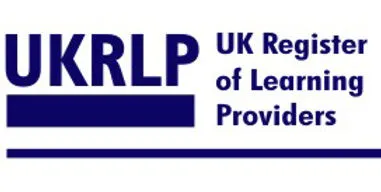09 Jul 2025
Recommended
Minimum 30 mins
Course
Access
Certification
Voiceover

Topical Medication Administration Awareness is an essential training course designed for health and social care professionals working across a range of care settings. The safe and effective administration of topical medicines, such as creams, ointments, gels, lotions, and medicated patches, is crucial in the management of various skin and mucosal conditions. Participants will learn about the principles of safe topical medicines administration, professional roles and responsibilities, infection prevention and control, and correct application techniques for different formulations. The course also covers the monitoring of patients for adverse reactions and side effects, as well as best practices for documentation and record-keeping. Upon completion, professionals will be equipped to deliver high-quality, person-centred care and support the wellbeing of individuals receiving topical medication.
The Topical Medication Administration Awareness course equipped health and social care professionals with the essential knowledge and practical skills for the safe, effective, and person-centred administration of topical medicines. The curriculum addressed the definition, types, and indications for topical medications, alongside the pharmacological principles underlying their use. The course also included specific guidance on the administration of topical corticosteroids and emphasised the importance of safe storage and disposal.
 £20
£20
Learning Outcomes.
By the end of this course,participants will be able:
Define topical medicines, identify their common forms, and distinguish between topical, transdermal, and percutaneous applications as per UK guidelines.
Identify common conditions managed with topical medicines and outline key pharmacological considerations for safe and effective use.
Summarise the professional responsibilities and boundaries in topical medication administration, including consent, communication, and relevant legal and regulatory requirements.
Apply the principles of safe administration, including verification, accurate record-keeping, and documentation using MAR and TMAR systems.
Demonstrate safe step-by-step application of topical medicines, using appropriate techniques for different formulations and maintaining infection prevention and control.
Recognise the need for monitoring adverse reactions, ensure correct storage, and implement best practice for topical corticosteroids and other agents.
Course
Contents.
01
An overview of topical medicines, their purpose, and their importance in treating a range of conditions in healthcare settings.
03
Description of various formulations such as creams, ointments, gels, lotions, sprays, and patches commonly used in the UK.
05
A summary of typical conditions managed with topical agents, including dermatological, musculoskeletal, and other disorders.
08
Clarification of the roles, responsibilities, and boundaries for healthcare professionals administering topical medicines, with reference to current UK legal and regulatory standards.

06
Factors influencing the choice, dosing, and effectiveness of topical medications, including patient-specific considerations.
09
Best practice guidance on obtaining consent, communicating effectively with patients, and maintaining accurate documentation using MAR/TMAR records.
02
A clear definition of topical medicines, with examples and distinctions from other routes of administration.
04
Explanation of how topical, transdermal, and percutaneous routes differ in absorption, indications, and clinical outcomes.
07
Discussion of how skin integrity, formulation type, site of application, and patient factors impact drug absorption
10
Step-by-step guidance for the safe application of topical medicines, including specific techniques for different formulations, infection prevention, monitoring for adverse reactions, correct storage, and special considerations for agents such as topical corticosteroids.
Topical Medication Administration Awareness trains health and social care staff in the safe, effective use of creams, ointments, gels, lotions, and patches to manage skin and mucosal conditions.
 Summary
Summary


